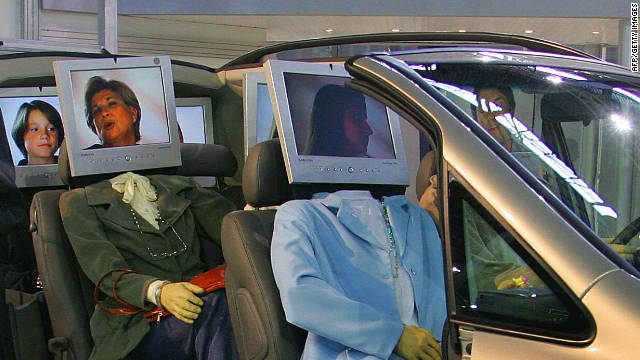(CNN) – Given a choice between internet access or keys to a car, which would you choose?
According to new research, it’s more of a toss-up for young adults. That not only marks a generational divide between lifestyle choices for Generation X and Gen-Y, but could have a knock-on effect for how future cars are developed, the study author says.
When posed with the dilemma of choosing between access to your car and access to the Internet, 46% of all 18-to-24-year-old drivers in the U.S. surveyed said they would choose the Internet and give up their cars.
That’s according to a study by Gartner research to be released early next year.
“Back in the 50s and 60s, everyone was keen on getting their driver’s license as it was liberating,” said study author Thilo Koslowski, lead automotive analyst for Gartner, in a phone interview with CNN. “Today, it’s not the case. The freedom now lies in accessing data online and people are just meeting up on social media sites like Facebook instead.”
Gartner’s research, which has been ongoing for a decade, shows a different paradigm forging among Generation Y. Young consumers now are only paying attention to new technology which benefits them in their daily lives. The trend was first seen in Japan and it’s now filtering across to the U.S., Koslowski said.
Moreover, as automakers in the world’s largest economy try to woo younger customers, this research suggests that the automotive industry should take more cues from smartphone developers.
“The phone does so much more than just make calls. It’s a way to stay connected now. In the same way, the car will need to be much more than just be a form of transport. While we’ll always need a car to get from one point to another, we’re seeing a change in its function.”
Some reasons for the shift: teenagers are spending more time text messaging rather than traveling to visit friends. And time spent texting limits time spent in the car, according to a recent New York Times article.
With fewer 16-year-olds obtaining their driver’s license, as statistics from the U.S. Transportation Department suggest, teenagers today are forcing a change in the direction of the automaker industry.
There are signs carmakers are making their vehicles more in-tune with smartphone generation. Drivers can remotely control the air conditioning system and check the car battery using their smart phone in the Nissan Leaf electric car.
Toyota’s new futuristic concept car also has smartphone sensibilities. The Toyota Fun-Vii allows the driver to download information from their phones and display it onto the body of the car.
Or even better, there could be Google cars on the roads driving themselves – giving teens even more time to text and use their phones.
Social networking sites such as Facebook and Twitter also points to another auto trend on the horizon: Renting cars out for short term use, known as “peer-to-peer car sharing,” Koslowski says. In Gartner’s research, some 60% of the 18-to-24-year-old that were surveyed said they were more likely to use this service than those in the older age brackets.








